
Choose PCI Magento Hosting for Secure and Fast Shopping
Tired of worrying about PCI audits for your Magento site?? PCI Magento hosting helps protect sensitive customer information and maintain trust.
The article explores the features and providers of PCI Magento hosting.
Key Takeaways
-
PCI compliance protects your store and your customers.
-
Not meeting PCI DSS standards can be risky.
-
Real brands used PCI Magento hosting.
-
Boost trust, security, and store performance with PCI hosting.
-
PCI compliance supports business growth and scalability.
What is PCI Magento Hosting?
Secure Your Magento Store Today
Real-time PCI compliance monitoring and cost analysis for your e-commerce platform
Compliance Score
Monthly Savings
Avoided fines & penalties
Security Level
Enhanced protection active
Real-Time Threat Monitoring
0
Threats Blocked
0
Vulnerabilities
100%
Uptime
PCI Magento hosting is a hosting that complies with the PCI-DSS requirements. It is for Magento ecommerce stores.
Businesses that accept credit card payments must follow PCI standards. It helps protect sensitive customer data.
The hosting combines server configurations tailored for Magento's operations with security measures. These include:
-
Firewalls
-
Encryption
-
Secure access controls
-
Regular vulnerability scanning
Essential Security Measures
Comprehensive protection features included in PCI-compliant hosting
Firewalls
Advanced firewall protection blocking unauthorized access attempts
Encryption
End-to-end encryption for stored and transmitted data
Access Controls
Multi-factor authentication and role-based permissions
Vulnerability Scanning
Regular automated scans to identify security weaknesses
Comprehensive Data Protection
These security measures work together to keep cardholder data safe and reduce the risk of data breaches or identity theft.
Multi-Layer Security
The Magento hosting ensures that your online store remains secure and fast. It also helps your store meet industry standards when handling payment information.
PCI-compliant Magento hosting helps avoid penalties and enhances customer trust. The platform is not PCI-compliant. It provides tools to achieve this. Your hosting environment helps meet these standards.
Why PCI Compliance Matters for Your Magento Store?
1. Industry and Legal Requirements
Adhere to PCI DSS standards if you accept credit card payments. It is whether a small startup or a large online retailer. Major credit card companies such as Visa and American Express. They have mandated these standards. Non-compliance can cause:
-
Fines range from $5,000 to $100,000 per month
-
Termination or suspension of your merchant account
-
Legal consequences if a breach occurs
-
Increased transaction fees or penalties from payment processors
2. Protects Your Customers Data
-
PCI compliance enforces strict data security measures, including:
1. Encryption of stored and transmitted data
2. Access controls to prevent unauthorized access
3. Activity monitoring and logging
4. Regular testing of security systems
-
When implemented, these measures help keep cardholder data safe. It reduces the risk of data breaches or identity theft.
3. Prevents Financial Loss
-
A data breach can be devastating. It is not to your brand but to your bank account. Without PCI compliance, you risk:
1. Costly recovery and remediation
2. Chargebacks and fraud reimbursements
3. Forensic investigations
4. Loss of revenue from customer churn
5. Downtime or complete shutdown of your store
-
Investing in PCI is far cheaper than dealing with the fallout of a breach.
-
One mid-sized fashion retailer reduced their compliance costs by 35%. It is by moving from a managed solution to a semi-managed PCI-compliant host
Calculate Your Savings
See how much you save by investing in PCI compliance vs paying fines
Business Details
Cost Analysis
Investing in PCI compliance saves you money
Real Success
35%
Cost reduction achieved by mid-sized retailer
ROI Timeline
3 Months
Typical payback period for compliance investment
Protection
Priceless
Customer trust and brand reputation
4. Boosts Brand Confidence and Customer Trust
-
Consumers are more careful about online security. PCI compliance means:
1. You take data protection
2. You are running a professional, secure business
3. Their personal and payment information is safe
-
It increases customer trust and reduces cart abandonment, especially during checkout.
5. Lowers Risk of Data Breaches
-
Hackers often target stores, especially Magento sites. It is because of their popularity and potential vulnerabilities. PCI compliance helps:
1. Block unauthorized access
2. Detect and respond to suspicious behavior
3. Patch known vulnerabilities before you exploit them
-
With regular updates and good hosting, PCI compliance gives you strong cybersecurity.
6. Supports Business Growth
-
As your business grows, so do the data and transactions you handle. PCI compliance ensures that your ecommerce store:
1. Can scale
2. Maintains a strong reputation with payment providers and customers
3. Is future-proofed for expansions or upgrades
-
Compliance also opens doors to working with better partners and payment gateways.
Industry and Legal Requirements
Mandatory standards for all businesses accepting credit card payments
Monthly Fines
$5,000 - $100,000
Per month for non-compliance
Account Status
Termination Risk
Merchant account suspension
Legal Action
Liability Risk
If breach occurs
Processing Fees
Increased Rates
Higher transaction costs
Stay Compliant, Stay Protected
Major credit card companies including Visa and American Express mandate these standards
3 Real-World Case Studies of PCI Magento Hosting
| Brands | Challenge | Solution | Results |
|---|---|---|---|
| 1. MARIA TASH | MARIA TASH needed to migrate from Magento 1 due to its end-of-life status. They sought a hosting solution. It should ensure PCI compliance and high availability, especially during peak traffic. | They upgraded to a managed cloud delivery on AWS. It offered predictive auto-scaling and comprehensive security measures. | Achieved 100% mitigation of cyber threats with an application-aware WAF. Maintained 100% uptime, even during promotional events. They benefitted from 24x7x365 DevSecOps support. It acts as an extension of their IT team. |
| 2. 2XU | 2XU aimed to have an international expansion. They faced challenges with their existing Magento platform. These include performance issues and the need for a responsive design. | They collaborated with managed hosting to overhaul their Magento-based e-commerce platform. It focuses on responsiveness, backend configuration, and enhanced security measures. | Delivered a mobile-optimized site, enhancing user experience. Enabled smooth management of different brands and partner websites. Implemented security protocols aligning with PCI compliance standards. |
| 3. Cadmus Distribution Group | Cadmus Distribution Group sought to develop a comprehensive B2B e-commerce site. It should have a smooth integration into external systems and powerful security features. | They teamed up with managed hosting to build a Magento 2 open-source platform. Utilizing Progressive Web App (PWA) technology ensured performance and security. | Achieved smooth integration with ERP and CRM systems. Delivered a fast, responsive user experience. Implemented measures to adhere to PCI DSS compliance, safeguarding sensitive information. |
Real-World Case Studies
How leading brands achieved PCI compliance and business growth
MARIA TASH
Migrated from Magento 1 with AWS managed cloud delivery
100%
Threat Mitigation
100%
Uptime
2XU
International expansion with responsive design overhaul
Cadmus Distribution Group
Comprehensive B2B e-commerce with PWA technology
Common Success Factors
What these successful implementations share
PCI DSS Compliance
All achieved full compliance standards
Performance Gains
Enhanced speed and reliability
Expert Support
24/7 professional assistance
6 Top PCI-Compliant Magento Hosting Providers
1. MGT-Commerce
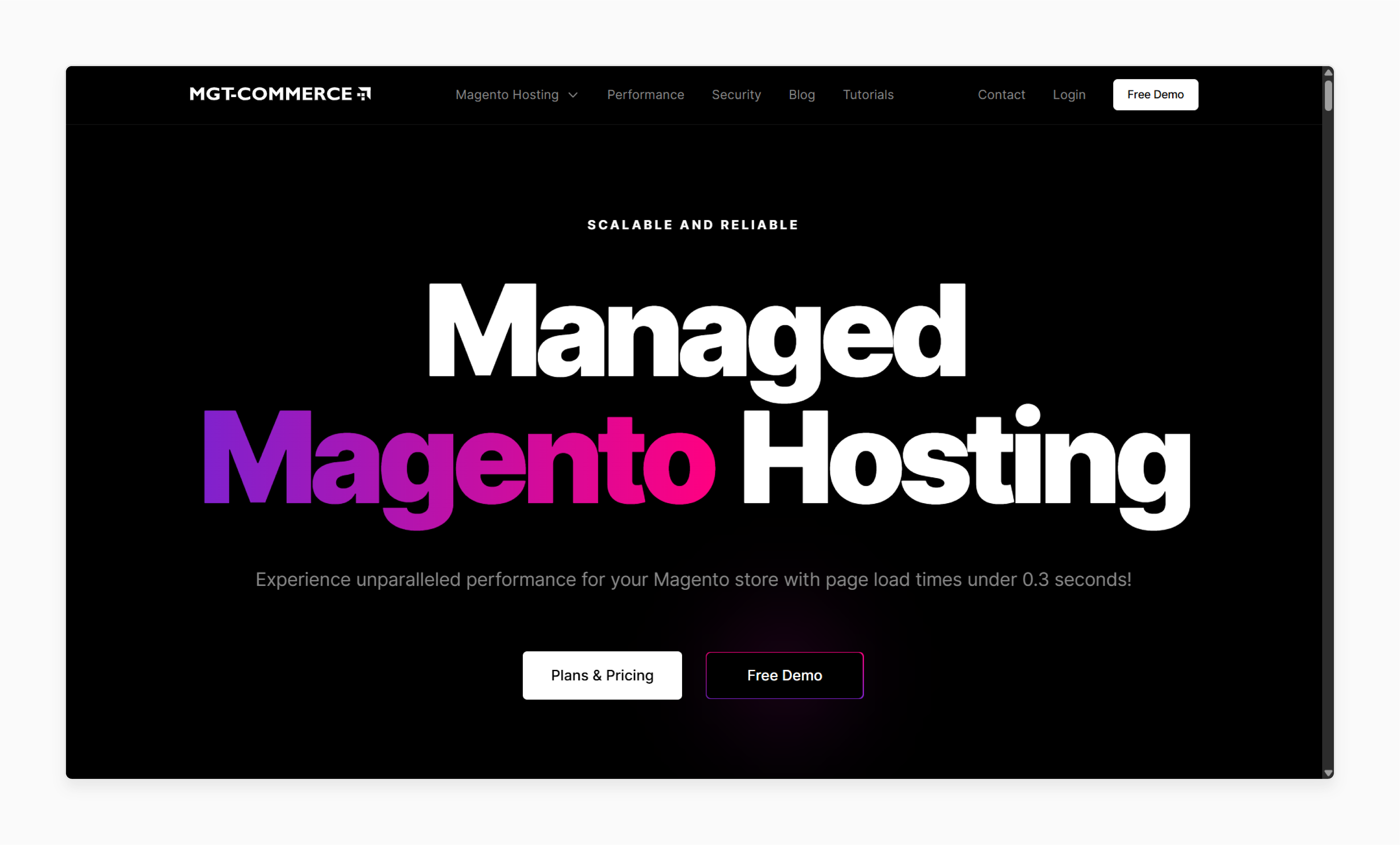
MGT-Commerce is a premium Magento hosting on AWS. It offers a PCI DSS-compliant infrastructure and services. It is ideal for enterprise Magento stores and businesses. They need high availability and strict compliance.
Key Features:
-
High-speed performance with Nginx and AWS Auto Scaling
-
Advanced security features, including firewalls and real-time monitoring
-
Managed services and a Magento-specific support team
2. Nexcess
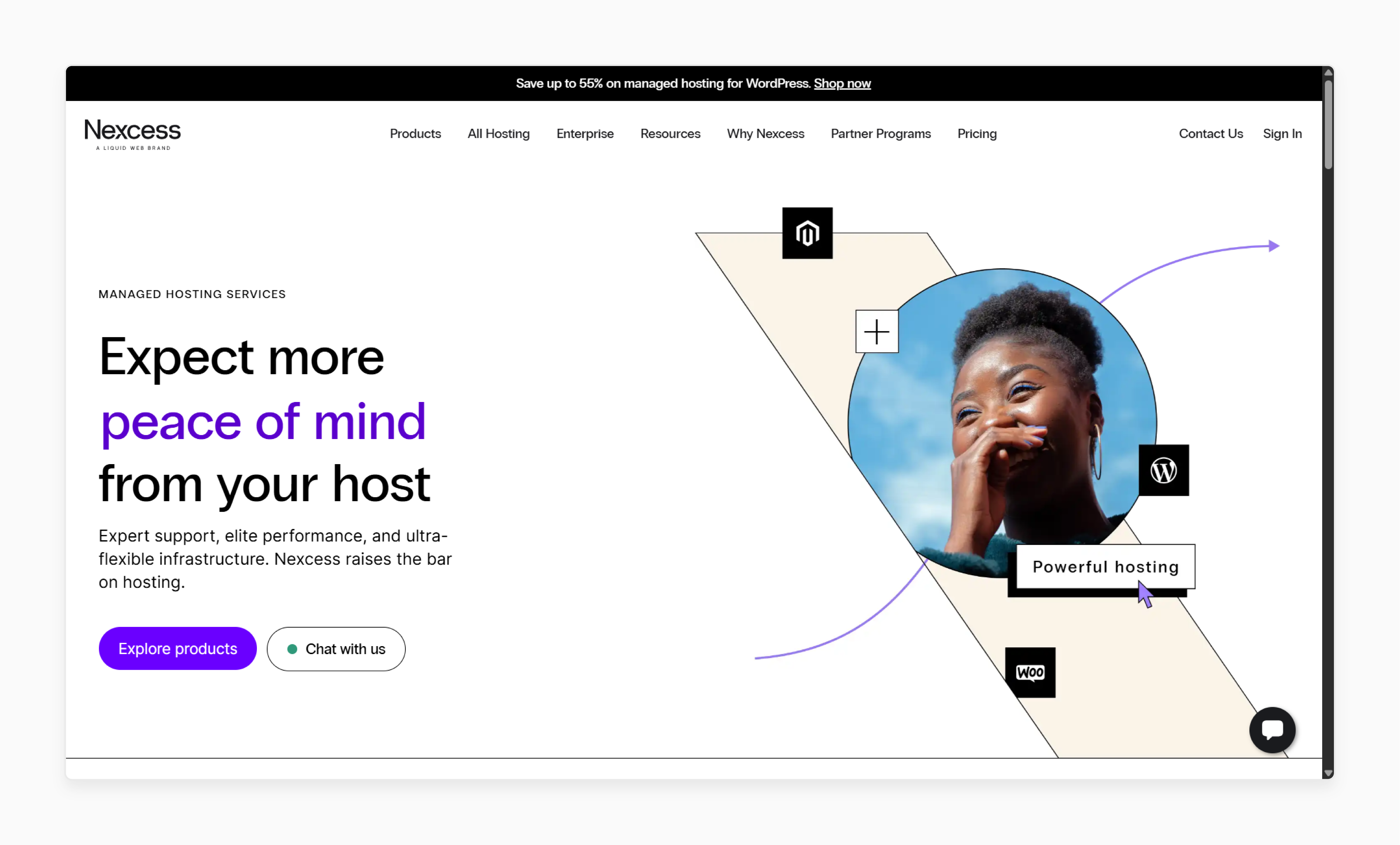
Nexcess is a managed Magento hosting solution. It offers a PCI-compliant hosting environment. It is ideal for medium to large Magento stores. They need performance and security out of the box.
Key Features:
-
Auto-scaling and 24/7 monitoring
-
Built-in caching and daily backups
-
Proactive security with firewalls and malware scanning
3. JetRails
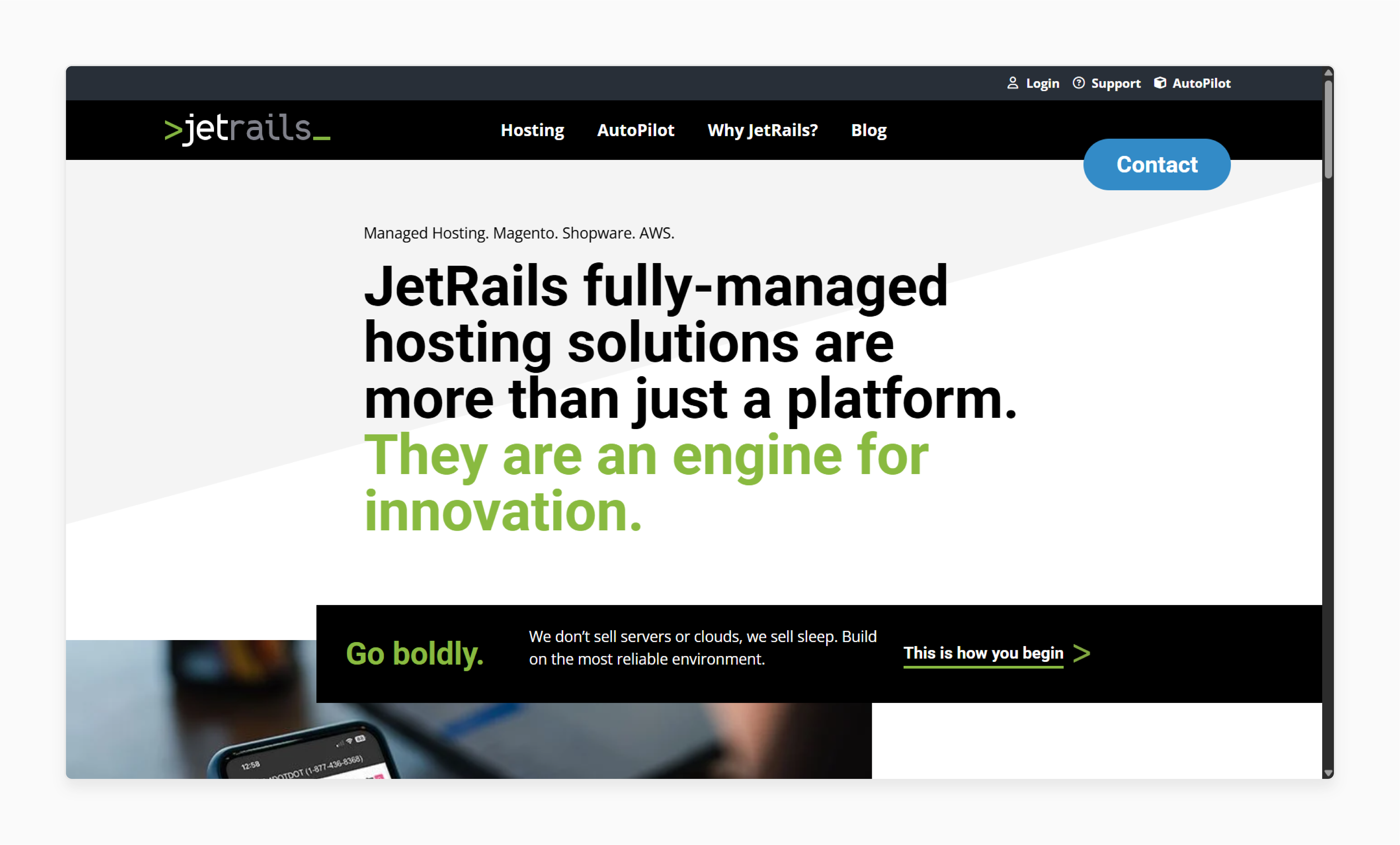
JetRails is a custom and managed Magento hosting. It offers a 100% PCI-compliant environments. It is ideal for high-traffic Magento stores. They need tailored infrastructure and deep compliance support.
Key Features:
-
High-security cloud and bare-metal servers
-
24/7 U.S.-based support team with Magento expertise
-
Intrusion detection systems (IDS) and DDoS protection
4. Cloudways
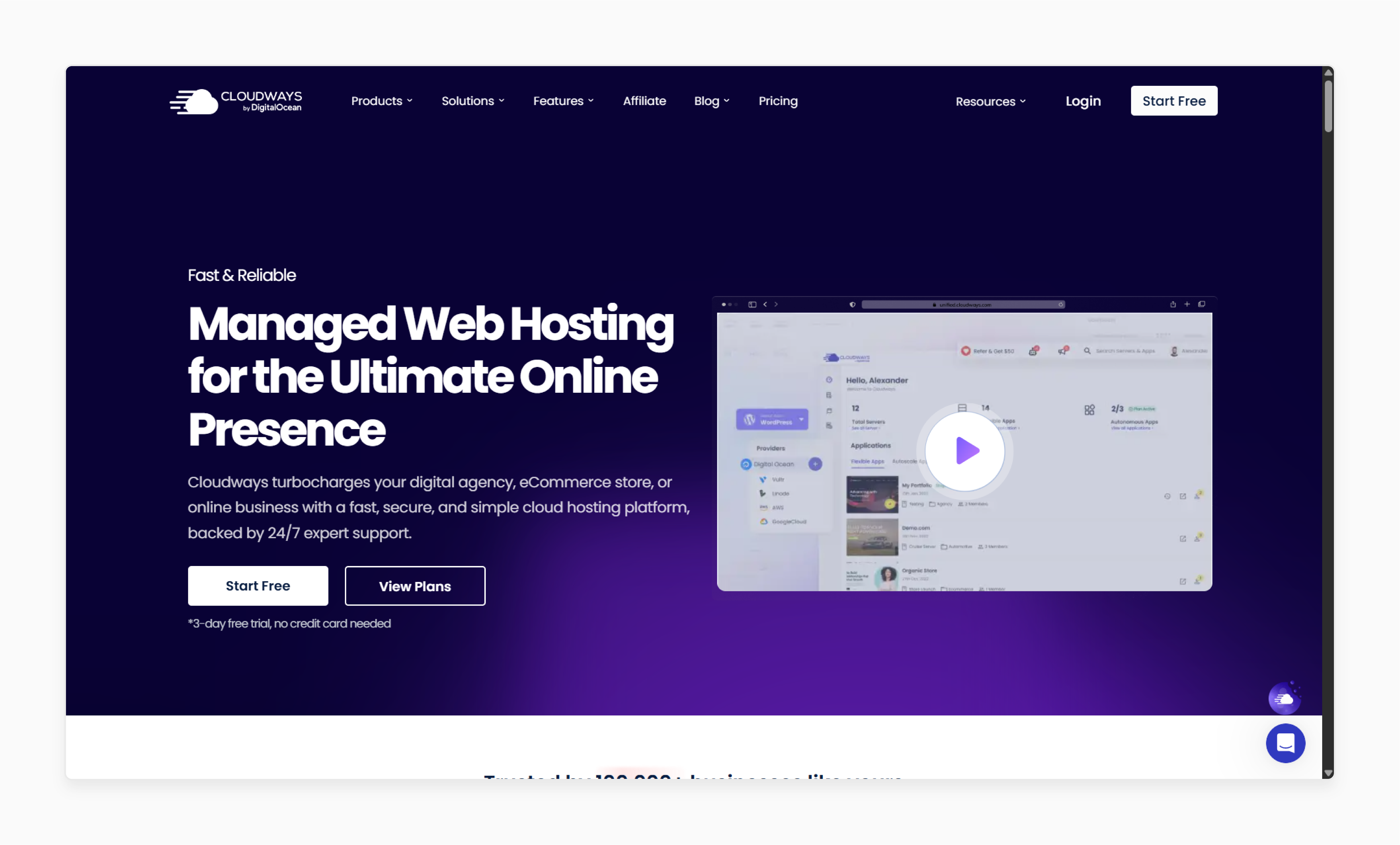
Cloudways is a cloud-based managed hosting with support for Magento. It is PCI-compliant with manual configurations. It is ideal for developers or businesses. They are comfortable managing their own PCI hardening.
Key Features:
-
Choose cloud providers like AWS and DigitalOcean
-
1-click staging and auto-healing servers
-
Built-in firewall and 24/7 real-time monitoring
5. Webscale
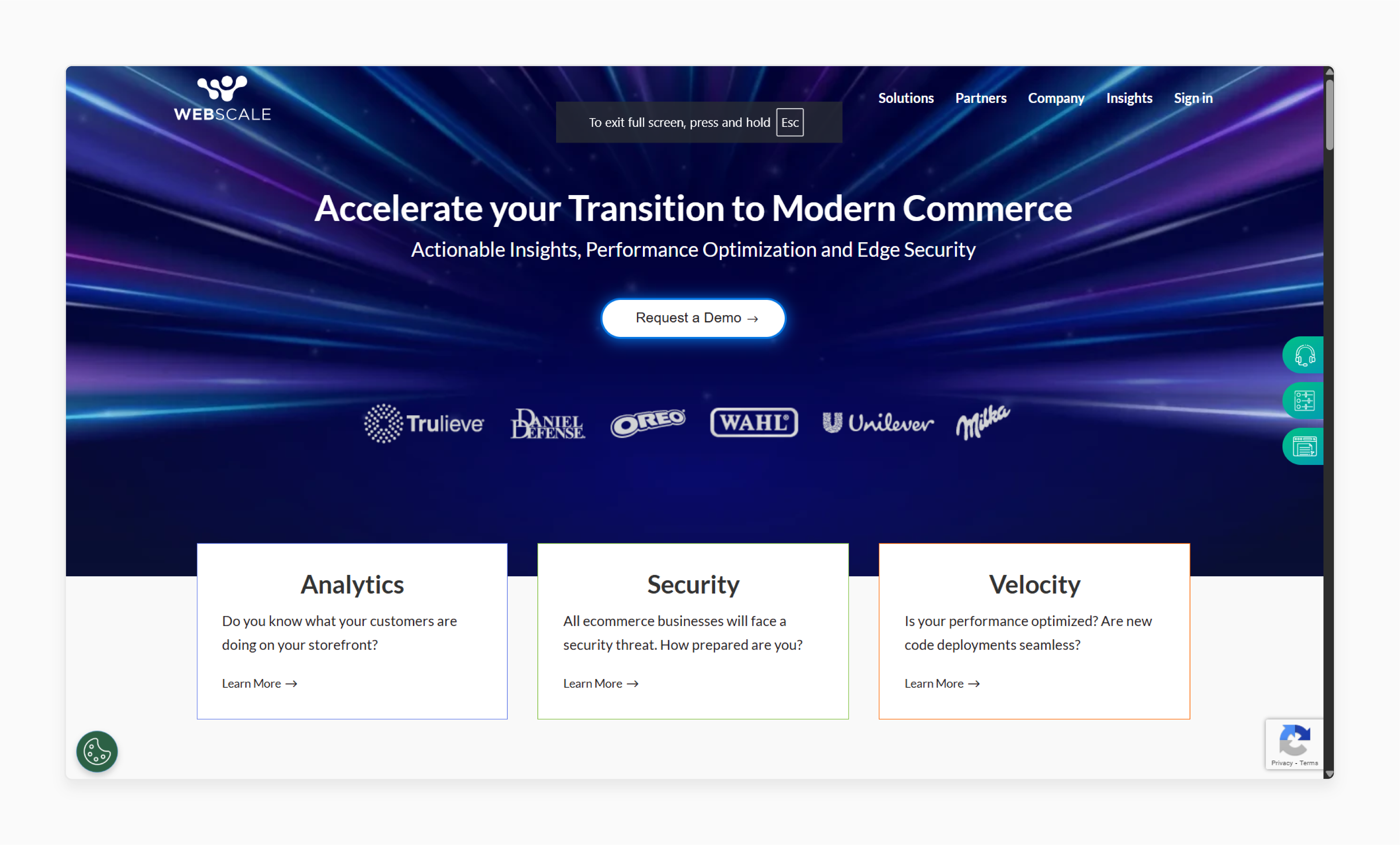
Webscale is a Magento-exclusive hosting. It offers a PCI-compliant by default. It is ideal for Magento stores of all sizes. They seek expert-level support and security.
Key Features:
-
"Always-on" auto-scaling and full-performance stack
-
Built-in WAF and staging environments
-
24/7 Magento support and guaranteed SLA uptime
6. A2 Hosting
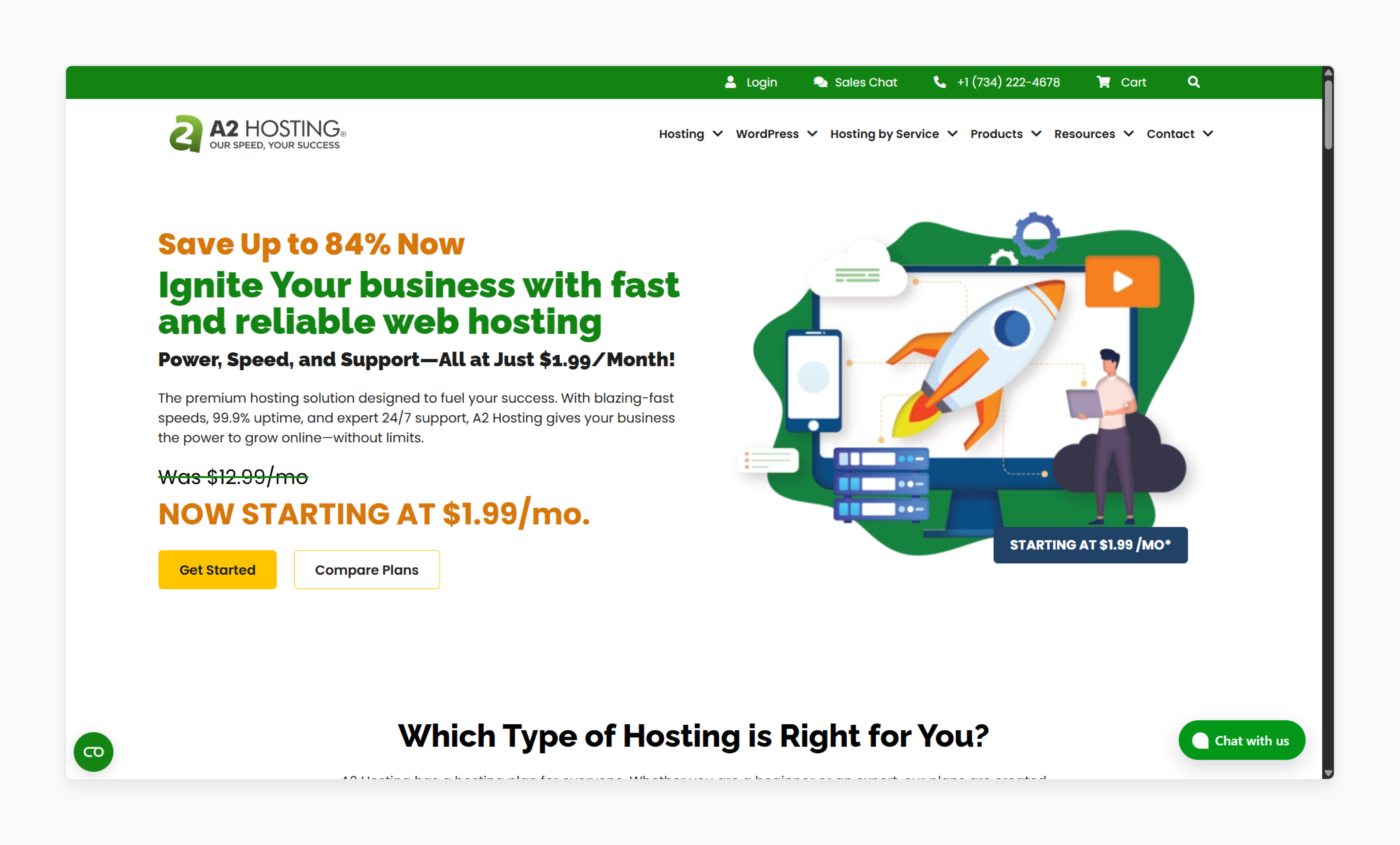
A2 Hosting is a developer-related hosting service for small to medium businesses. It is available through Turbo plans with configuration. It is ideal for startups or small businesses. They need budget-related compliance.
Key Features:
-
Turbo servers for up to 20x faster performance
-
Free SSL and offsite backups
-
Optional PCI-compliant configurations
Top 6 PCI-Compliant Hosting Providers
Compare features, pricing, and specializations of leading Magento hosts
MGT-Commerce
Premium AWS-based hosting
Nexcess
Managed Magento solution
JetRails
100% PCI-compliant custom
Cloudways
Cloud-based managed
Webscale
Magento-exclusive hosting
A2 Hosting
Budget-friendly solution
Pricing Overview
PCI-compliant Magento hosting ranges from basic to enterprise solutions
$20/month
Basic configurations for small stores
$200/month
Mid-range solutions with features
$1,000+/month
Enterprise-level with full support
6 Common Challenges and Solutions with PCI Compliance
| Challenges | Explanation | Solutions |
|---|---|---|
| 1. Complex and Evolving PCI DSS Requirements | PCI DSS standards are technical and often updated. It can be hard to interpret, especially for small teams. | Partner with a PCI-compliant hosting provider. It offloads much of the technical responsibility. Use certified security consultants to audit and guide your compliance strategy. Stay informed on the latest PCI version changes. These include the transition from PCI DSS v3.2.1 to v4.0. |
| 2. Insecure Custom Code or Extensions | Many Magento sites rely on third-party plugins or custom development. It can introduce vulnerabilities. | Use reputable extensions from trusted sources. Perform regular code reviews and security testing like penetration testing. Enable built-in security features, like reCAPTCHA and 2FA. |
| 3. Misconfigured Servers or Hosting | Shared or unmanaged servers may lack required controls like proper encryption or firewalls. | Choose a PCI-ready or PCI-certified Magento host like Nexcess and MGT-Commerce. Ensure your server environment includes WAFs and SSL encryption. Update all server software and PHP versions. |
| 4. Improper Storing or Handling of Credit Card Data | Storing cardholder data increases PCI scope and liability. | Use a PCI-compliant payment gateway like Stripe. It tokenizes and handles all sensitive data. Avoid storing credit card data unless required and then encrypt it. Use SAQ-A or SAQ A-EP forms to limit your PCI scope if applicable. |
| 5. Lack of Employee Awareness or Policies | Even if your tech is secure, untrained staff can create vulnerabilities. These include phishing and weak passwords. | Conduct regular security awareness training. Use clear policies around password management and data handling. Use role-based access control to limit who can access sensitive systems. |
| 6. Inadequate Logging and Monitoring | You can't track suspicious behavior or detect breaches without proper logging. | Use Magento-compatible security information and event management (SIEM) tools or managed services. Enable real-time alerts and maintain logs per PCI requirements. Keep logs for at least one year. |
Common Challenges & Solutions
Interactive guide to overcoming PCI compliance obstacles
PCI Compliance Checklist
Comprehensive checklist to ensure your Magento store meets all PCI DSS requirements
1. Install and Maintain Firewalls
2. Protect Stored Cardholder Data
3. Encrypt Transmission Data
4. Restrict Access by Business Need
5. Monitor Network Activity
6. Test Security Systems
FAQs
1. Do I need full PCI compliance using third-party payment gateways?
External payment gateways like PayPal or Stripe can reduce your compliance burden. You are still responsible for securing your website components. You should ensure proper gateway integration. Some level of PCI compliance is still required.
2. How much does PCI-compliant Magento hosting cost?
PCI-compliant Magento hosting ranges from $20/month for basic configurations. It is suitable for small stores to $1,000+/month for enterprise-level solutions. The cost varies based on traffic volume and the level of compliance support offered.
3. How often must I verify my hosting's PCI compliance?
PCI compliance requires continuous monitoring. Magento stores should conduct vulnerability scans quarterly. They should also complete an appropriate Self-Assessment Questionnaire per year. Larger merchants may need more frequent verification and external audits.
4. Can I achieve PCI compliance with shared hosting?
While possible, achieving PCI compliance on shared hosting is challenging. It is not recommended for Magento stores that process payments. Shared hosting environments lack the security isolation and monitoring capabilities for PCI compliance.
Summary
PCI Magento hosting ensures that stores meet the PCI DSS to protect customer data. The article explores the key features of the hosting, including:
-
Includes firewalls, SSL encryption, malware scanning, and secure data storage.
-
Offers access controls like 2FA, role-based access, and a secure admin panel.
-
Optimizes performance with caching, database tuning, and CDN integration.
-
Supports compliance through vulnerability scans and PCI-ready infrastructure.
Secure your store with trusted PCI Magento hosting. Pair it with managed Magento hosting to boost performance and protect customer data.



